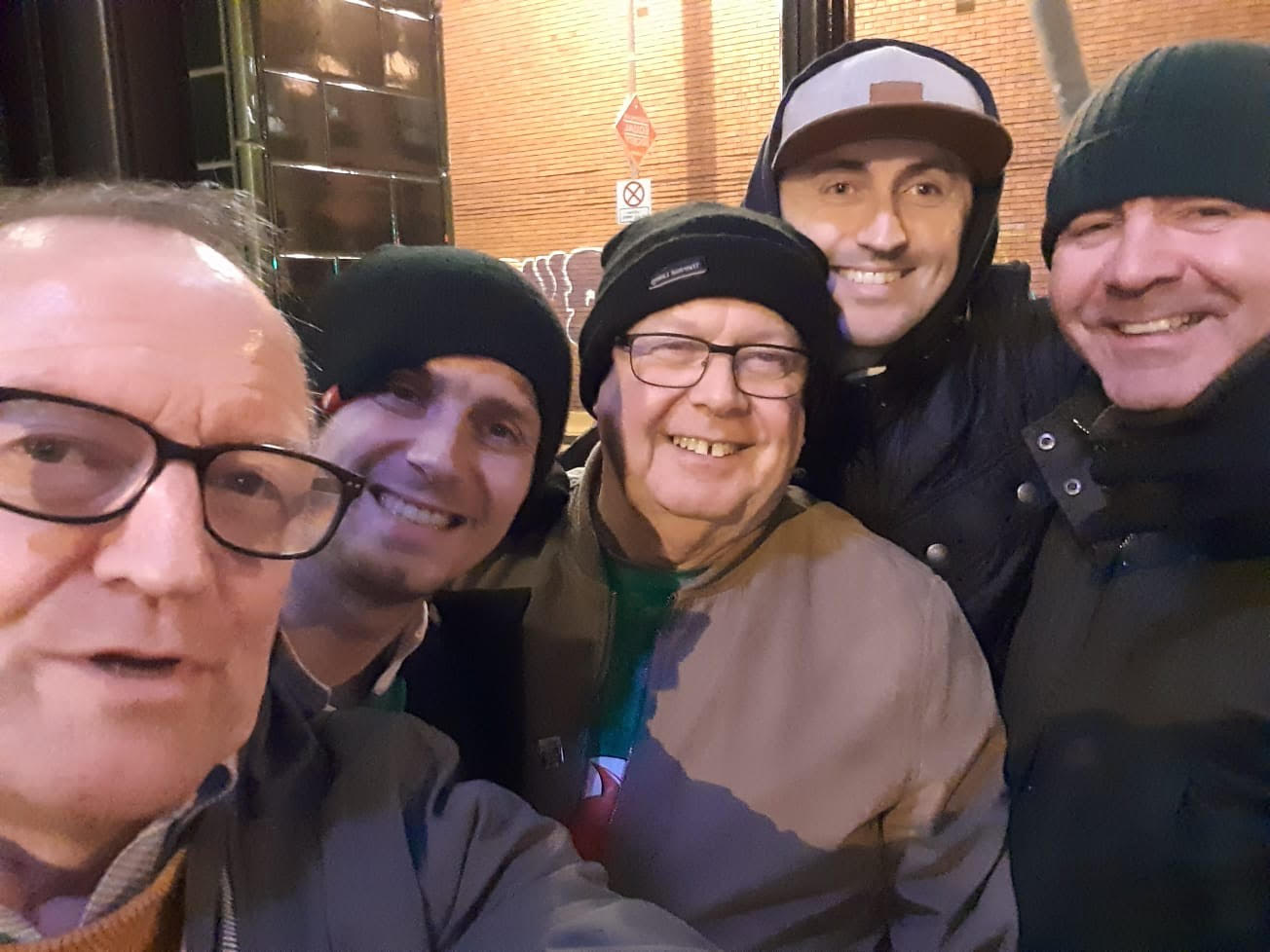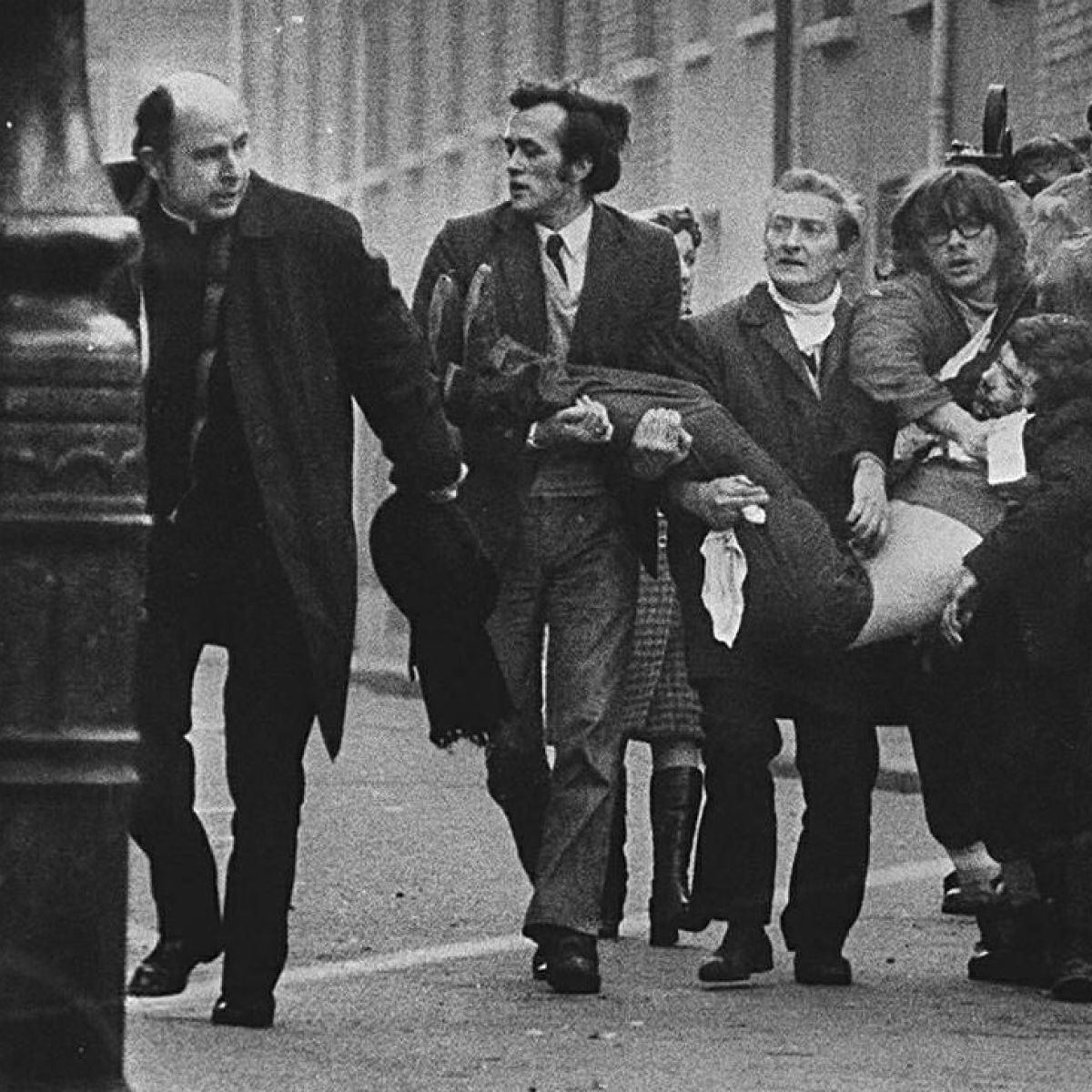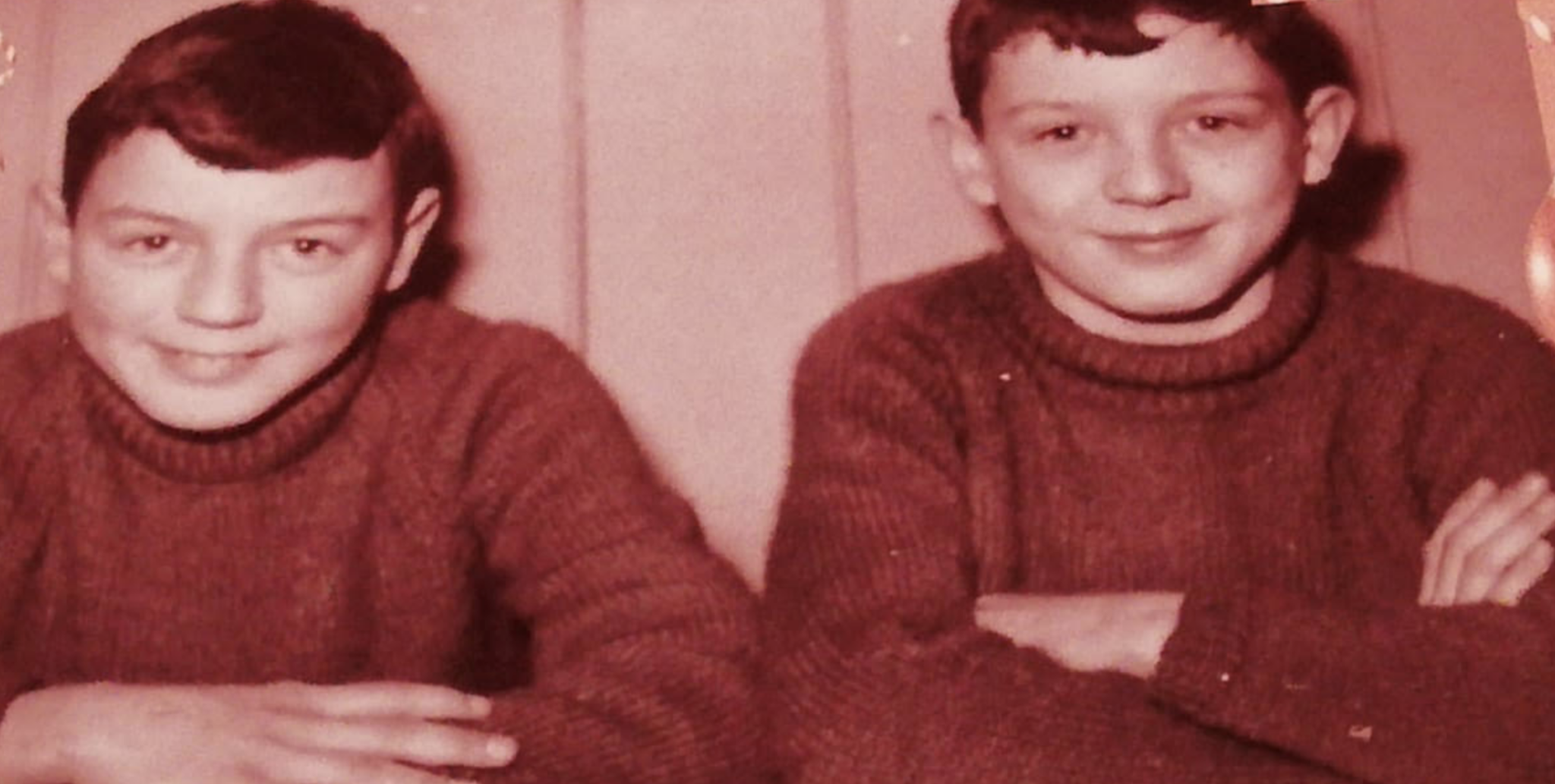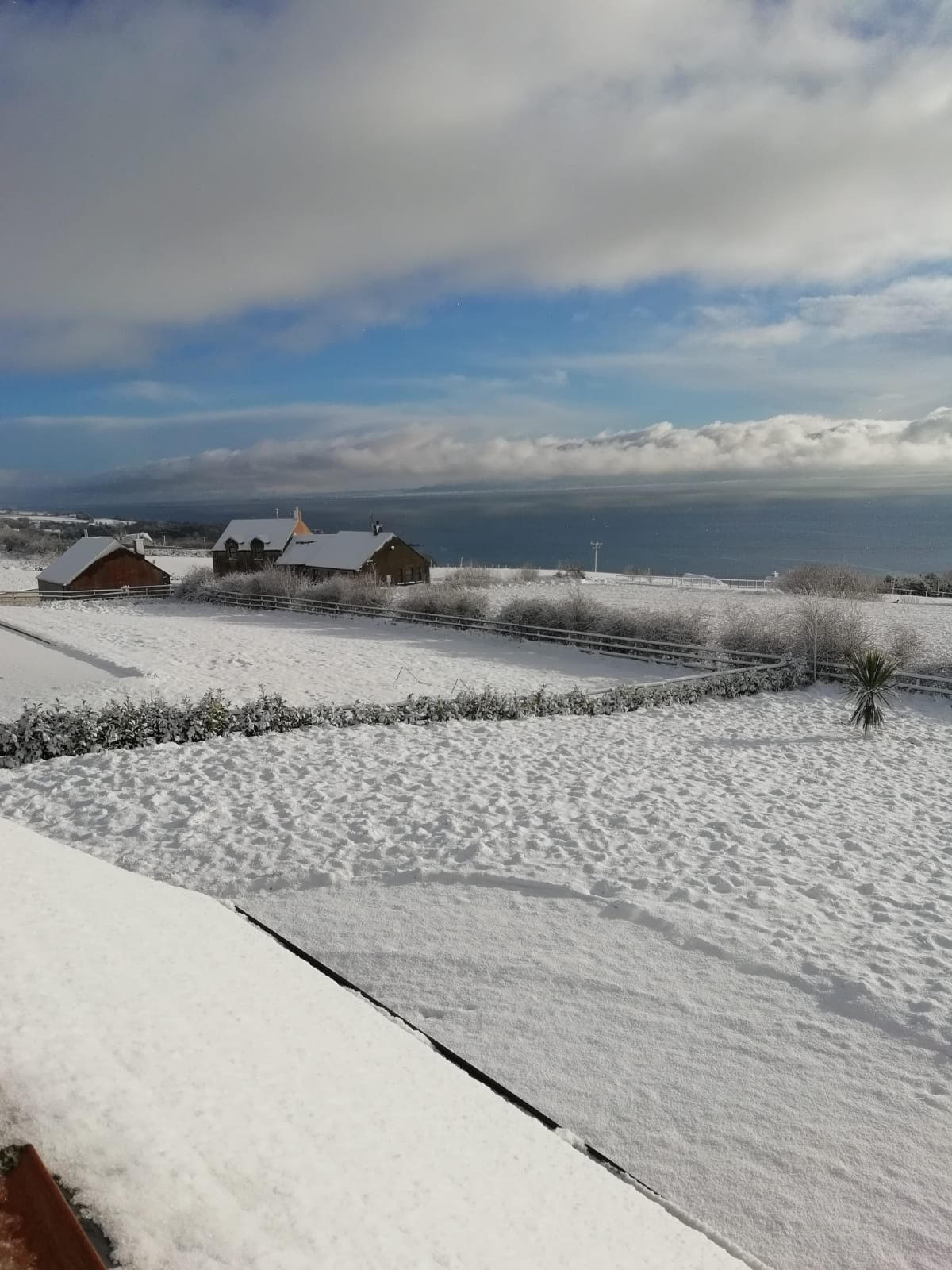In the second part of a series in which we ask parents about their lives, John Bradley tells his story of avoiding death by centimetres, the experience of growing up in the Troubles and how it affected his life.
John was born in Derry in August 1958, educated and raised there, before leaving for the University of Liverpool at 18. John was one of five boys, a twin with his brother Bernard, who passed away in 2002.
He settled in the UK for 40 years, raising a family, before moving back to Donegal.
His story tells much of the reverberations of terror on a life lived, where safety was by no means guaranteed as a child.
John was diagnosed with bipolar disorder, one of tens of thousands in the north that medicate themselves for depression of varying forms and severity.
This is not to say that John's life was defined by the Troubles - far from it. He embodies a type of person common in the north: unfailingly kind, intelligent, historically-aware, with a heightened phobia of injustice.
Our extended family, including dad's three brothers, are very similar in this regard.
Thankfully, Dad largely avoided the medication that alcohol provides for many in the north, which recorded its highest number of alcohol-related deaths in 2019. The Troubles remains inextricably linked with brutal societal problems.
So, in his own words, my father gives some, often-jarring, memories of growing up in a war zone - and building a life:
 John Bradley, far left. Also pictured: assorted Bradleys in varying states of inebriation.
John Bradley, far left. Also pictured: assorted Bradleys in varying states of inebriation.CB: When were you most scared?
JB: I was scared many, many times, and terrified a fair number of times during the Troubles. I was worried a lot of the time during the week because as kids, my brother and I gradually became spectators to a fairly vicious war.
There were gun battles most nights, often car bombs in the centre of the town. The gun battles involved Provos, usually young lads of 18 or 19, firing their American M16 American assault rifles from the corner of Beechwood Avenue, behind our home, I suppose around 300 yards away.
They would fire onto 'Piggery Ridge,' the British Army base in the old factory about 400 yards as the crow flies from the bottom of our street.
It was called Piggery Ridge because armoured cars raced through the streets throughout the day and night. Two types: the Saracen, a then-modern armoured soldier carrier, that had a powerful engine which whined like a jet engine and through whose noise you could not speak.
The other armoured car was an older, 1950s vehicle, square and angular. Known as a Pyg. It must have been an acronym but was just called a Pig by Derry people.
Our days going to school were in the company of these vehicles racing through the streets, sometimes being stoned by kids like me. But not me. From time to time the soldiers - 'Brits' - would jump out and pursue the stone-throwers who were often school colleagues of mine.
I didn't hate these people, but I definitely felt really hostile to them. They had no right to be on the streets of my home town. I really did feel that they were an army of occupation and the guns they carried meant they could do what they wanted.
Including shooting me, in the knowledge - as Bloody Sunday has shown until this very day - that they could get away with it.
I remember, many years later, my schoolfriend, who was a daily stone-thrower, telling me how he left his home in Creggan, almost right away passing a patrol of soldiers (usually 8 or 12, split between each side of the street) with the last one walking backwards and scanning the street.
They were boys, really, most were around 19 and very very rarely accompanied by an officer. [He] told me how, as he was leaving home, the patrols were attacked by gunfire and one of the soldiers fell to the ground, wounded.
They always wore heavy bulletproof flak jackets and his comrades rushed to him and pulled the flak jacket open. [He] remembers the soldier was wearing a yellow T-shirt, slowly turning red with his blood.
The soldier didn't survive.
CB: What were you like in school?
JB: School was fine, although I enjoyed the earlier years rather than from 11 to 19. My first ever school was St Eugene's Infants School, opposite St Eugene's catholic cathedral in Derry. The school was on Francis Street, near the centre of the Bogside.
It was always known as, "The Wee Nuns." That was because the headmistress at the time was a wee nun. I can see her still.
Small, of course, in a grey nun's habit. A bit severe, but with a smile for children and parents.
St. Columb's College in Derry was a different experience again. My brothers and I followed in a fairly long line of Bradleys who made the journey there from Donegal for education. There were the usual couple of family-born priests thrown in.
The Troubles showed themselves in a big way with Bloody Sunday, although by then, nightly gun battles were common and all of us kids would identify, from the reports of the guns, which weapons were being fired and therefore, which side was attacking or defending themselves.
I don't remember the impact of bloody Sunday on the school other than that, having listened to what seemed to be never-ending volleys of British Army Self Loading Rifle from my back garden.
The news confirmed that Bernard McGugam, one of those murdered and dad of a classmate had been shot while trying to rescue another victim.
I also found that young Michael McDaid, my cousin's young barman had also been murdered.
 Michael McDaid, carried through Derry: 30 January 1972.
Michael McDaid, carried through Derry: 30 January 1972.Walking to 12pm mass with my father, I knew there was going to be trouble, as the streets were covered in army patrols made up of Parachute Regiment soldiers with their distinctive airborne helmet. Their faces were covered in camouflage paint which was not seen before in Derry.
Fr. O' Neill came into the pulpit as mass ended to say that St Eugene's Cathedral was surrounded by soldiers and armoured cars and advised we should go home quietly.
We know what happened after that. It marked a huge extension of the Troubles and god knows how many of my school friends joined the Provos, as a result.
Our daily alarm call was a British Army Lynx helicopter hovering over our home and the area from 6am. The pilots must have been new to Derry because they would have known that the Provos were not early risers.
My schooling at St. Columb's coincided with the worst of the so-called "Troubles" in Derry.
One of the incidents that stays in mind is a bomb attack on a British Army "sangar" in the grounds of St. Columb's, within 20 yards of my Irish class, blowing the sandbagged emplacement to pieces.
Immediately, most, if not all, of the students were herded into the school gym for safety. Within five or ten minutes another blast blew every single glass window on top of us. The gym was made up mostly of huge glass windows. As 12-year-olds, I would say we must all have been terrified.
Finally, an afternoon when my twin brother and I were within centimetres of death. Walking back from school, we probably didn't pay any attention to the fact that a British army patrol.
The last soldier on either side of the street was walking backwards looking for potential attackers, all of them knowing there would be no attack with two fourteen-year-old kids in the middle of the patrol.
Not true. [My twin] and I heard the huge rattle of a machine gun pointing in our direction, from the tip of Stanley's Walk.
Do you know what bullets sounds liken as it passes your ear? Zing zing zing, just like that annoyingly close noise of a mosquito beside your war in bed.
We would have been a little paragraph in the history of the Troubles. 'Twin brothers tragically cut down by IRA attack that went horribly wrong.'
 The twins in question: John (l) and Bernard (r)
The twins in question: John (l) and Bernard (r)CB: What memories do you cherish most? If it's kid-related, could you give us a bit more information?
JB: My memories which I cherish most are of my times at my mother's house, now partly mine, Sandymills. The mill referred to was the Scutch Mill by the nearby bridge over the river Deele. Scutching was part of the process of making linen.
My memories are of long summer days. I could have been taking a wander down to the river where I might play right by the bank, just playing with a stick and making pretend explosions in the sand just under the water; or watching tadpoles; or playing in the sandbank below the cemetery.
Most often in summer, my days were spent on the Marron farm. It was owned by [AM]. [AM] was famous for swearing. A lot. He was a great man, good fun.
We'd walk the 3/4 mile to the farm in the morning, bring the cows in and milk them. By hand. It took a while to get used to it, but after a few days we'd easily get a bucketful out of one cow.
Sometimes we - my brothers and I - would splash the milk straight from the cow into our mouths. Or onto a cat. Warm straight from the udder.
 The peace of Donegal, John's home.
The peace of Donegal, John's home.CB: What is your biggest regret?
JB: I think not going to an Irish university. If id set my sights on Trinity in Dublin, for example, I would, most likely, have studied law and my life would have taken a very different path.
However, that would have meant not meeting Mum or having my beloved children. "Regret" is far too strong a word for this.
CB: Who inspires you?
JB: My children. People who do good things. Great writers. [Your brother's] photography. The sights and sound of the ocean. The countryside. Some of my friends. Birdsong. History, some of it. You.
CB: What story or memory from your children best encapsulates their personality?
JB: Your care and love of [your brother], as well as your irreverent sense of humour and desire to write best encapsulate your personality.
The word 'no' could have encapsulated [your brother] for a few years!
However, his love of Manchester United, the many lessons - not the least of these the considerable impact of TV football commentating on the width of Niall's vocabulary and the use of pretty complex analogies from time to time - that football has taught Niall and the love he has for his siblings and Mum are things of which I am exceptionally proud.
CB: What was your best trip?
JB: My year studying abroad in Granada and Seville in 1980-1981.
I learned about a new country, its culture, the pain of its recent history, and the soaring ambition of its distant past.
Learning what friendship means. Falling in love for the first time. Understanding the difference a warm climate makes to life and your outlook on life
CB: What have you discovered recently that you wished you'd known earlier?
JB: That allowing yourself to be chained to a desk and catching the 07:25 every day or driving thousands of miles each year and not realising there can be other, fulfilling ways to make a living and bring up a family.
That it's important to take advantage of what life offers: and NOT do a job you do not like doing.
CB: Who was your first real love?
JB: A girl I worked with in a hotel in Donegal. She had dark brown hair, a feisty Irish temperament and a lovely accent. Could be describing Mum!
Download the brand new OffTheBall App in the Play Store & App Store right now! We've got you covered!
Subscribe to OffTheBall's YouTube channel for more videos, like us on Facebook or follow us on Twitter for the latest sporting news and content.








